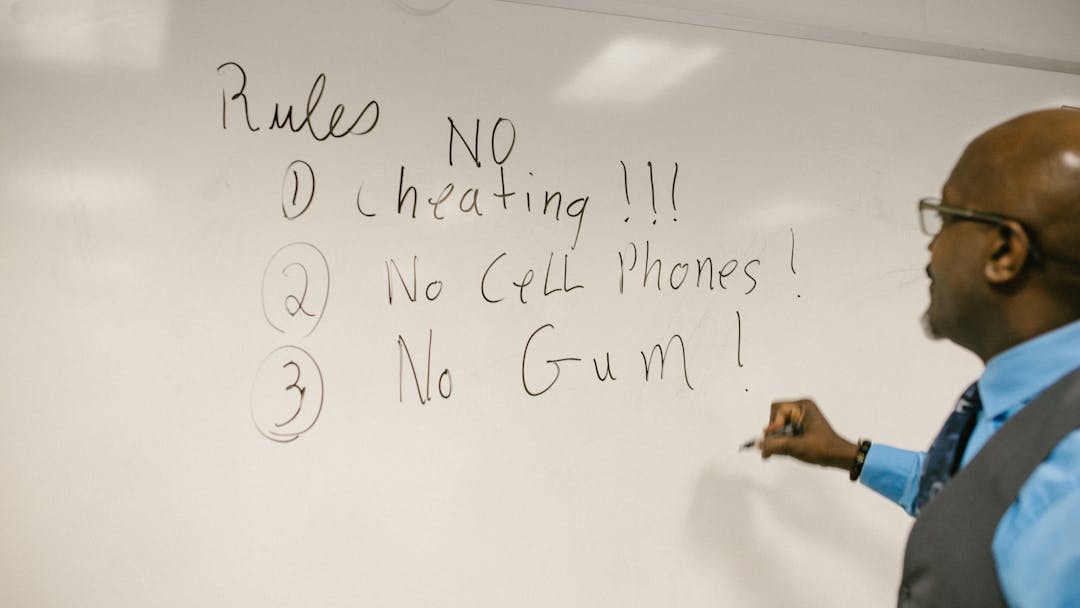Understanding the Rule of Completeness in Michigan Courts: MRE 106
In the pursuit of truth and ensuring fairness during legal proceedings, the Michigan Rules of Evidence (MRE) play a crucial role.
One particular rule, MRE 106 (Completeness), safeguards against misleading interpretations and fosters a more comprehensive understanding of presented evidence.
What is the Rule of Completeness?
MRE 106 states: “If a party introduces part of a writing or recorded statement, any other party may introduce the remainder, or so much thereof as is relevant to the portion introduced, if the remainder or portion thereof offered completes the statement or renders it more understandable.”
In simpler terms, when a portion of a written or recorded statement is presented in court, the opposing party has the right to introduce the remaining relevant parts of the statement.
This ensures that the jury or judge hears the full context and avoids being swayed by a potentially misleading snippet of evidence.
Why is the Rule of Completeness Important?
Imagine a scenario where the prosecution presents a written excerpt from a witness’s statement, highlighting a specific sentence that seemingly incriminates the defendant. Without the complete statement, the jury might be left with an incomplete picture, potentially overlooking crucial contextual details or even contradictory information that could exonerate the defendant.
MRE 106 prevents such scenarios by allowing the defense to introduce the remaining relevant parts of the statement. This ensures that:
- The jury has access to a more complete picture and can make a well-informed decision based on all relevant information.
- Misleading interpretations are minimized as the opposing party can present the full context of the statement.
- Fairness is upheld by allowing both sides to present a complete picture of their case.
It’s important to note:
- The opposing party can only introduce relevant portions of the statement, not everything. The court will determine what constitutes relevant information based on the specific case and the previously introduced portion.
- MRE 106 only applies to written or recorded statements, not oral statements.
Conclusion
MRE 106 plays a vital role in ensuring fairness and promoting a complete understanding of evidence in Michigan courts. By allowing the introduction of relevant, contextual information, the rule helps prevent misleading interpretations and fosters a more just legal process.

Related Articles
No Results Found
The page you requested could not be found. Try refining your search, or use the navigation above to locate the post.
More Posts

Warrantless Searches in Michigan
I don't need a warrant for that...In Michigan, as in the rest of the United States, the Fourth Amendment of the fading Constitution provides individuals with protection against unreasonable searches and seizures by law enforcement. Generally, this means that police...

One of Michigan’s Top DUI Attorneys
We aggressively defend all aspects of traffic law, from simple civil infractions to more serious alcohol and drug-related offenses. Don't wait till the last second to get an attorney. That's how you lose.Why Attorney Michael Komorn is one of Michigan’s Top DUI...

Michigan DUI Laws and Consequences – Second Offense
Michigan DUI Laws and Consequences – Second Offense Operating Under the Influence (OUI) is a serious offense in Michigan. If someone is caught driving under the influence of alcohol or drugs, they can face severe penalties. When it comes to a second offense, the...

Federal Ban on Owning Firearms by Cannabis Consumers is Unconstitutional Court Says
Federal charges against a non-violent, cannabis-using gun owner were unconstitutional.A federal appeals court panel upheld a lower court's ruling on Wednesday, declaring that federal charges against a non-violent, cannabis-using gun owner were unconstitutional. “The...

AG Nessel joined 21 attorneys general to regulate the sale of firearms
Extreme Risk Protection Order to prevent individuals from possessing or owning a firearm for eight years following their conviction. That legislation was signed into law by Governor Gretchen Whitmer in November of 2023.Michigan Attorney General Dana Nessel has joined...

Michigan DUI Laws and Consequences – First Offense
First Offense DUI in Michigan: Laws and ConsequencesFacing a first offense DUI in Michigan can be daunting as the implications are significant and the legal landscape is complex. Understanding the laws surrounding Operating While Intoxicated is essential, as these...

Court Ruling – No bonus for growing weed
COURT RULING – SORRY NO BONUS FOR GROWING CANNABISA marijuana farm worker is unable to succeed in his breach-of-contract lawsuit regarding a $100,000 bonus he claims to be owed for producing a healthy harvest of 1400 pounds of dry cannabis crop as the contract is...

Cannabis workers claimed employer violated labor laws
Allegedly had to put on company-issued personal protective equipment (“PPE”) (such as masks, hair nets, arm sleeves, gloves, scrubs, and protective shoes) before clocking in Close to 1.2 milion settlement for 134 cannabis workers alleging wage violations under federal...

The MSP is Concerned About Your Privacy (Vehicle Information)
Is the Michigan State Police really concerned about your Driver License and Motor Vehicle Information privacy?Here's what they say on their websiteThe Michigan State Police (MSP) is committed to protecting the privacy of your potentially personally identifiable data...

The MSP is Concerned About Your Privacy (Biometric Information)
Is the Michigan State Police really concerned about your DNA / biometric privacy?Here's what they say on their websiteThe Michigan State Police (MSP) is committed to protecting the privacy of your potentially personally identifiable data (PPID) in a strong and...












